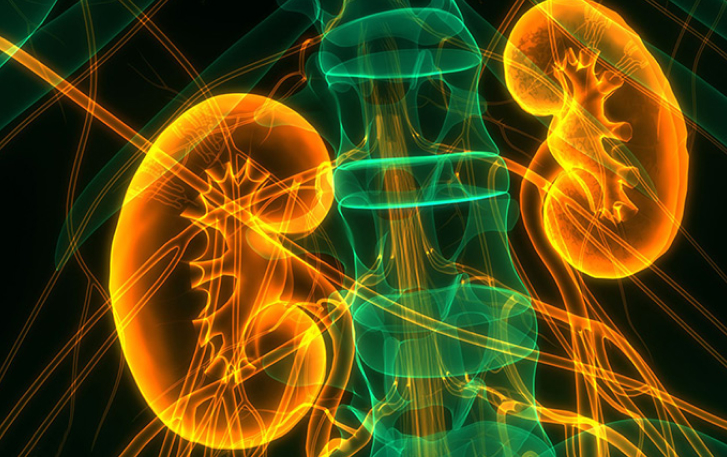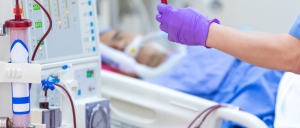We have vast experience in handling the most complex kidney-related conditions, including kidney transplants, chronic kidney disease (CKD) management, dialysis, and treatment of all types of nephrotic and glomerular disorders. Our nephrology department is recognized as one of the best in India, offering success rates comparable to international standards. With state-of-the-art technology and a patient-centric approach, we ensure comprehensive kidney care, from preventive screenings to advanced renal therapies.

A nephrologist is a medical doctor who specializes in the diagnosis, treatment, and management of kidney-related diseases and conditions. Nephrologists are experts in treating a wide range of kidney disorders, including:
Nephrologists use a combination of medical treatments, lifestyle advice, and advanced diagnostic tests to manage kidney function, slow disease progression, and improve the quality of life for patients with kidney disorders. They work closely with other specialists, such as urologists and transplant surgeons, to provide comprehensive care.
Kidney conditions can arise from a variety of factors, including:
Our dedicated Nephrology ICU is equipped with round-the-clock monitoring and a 1:1 nursing ratio to provide critical care for patients with severe kidney disorders. It is well-equipped with bedside dialysis, continuous renal replacement therapy (CRRT), infusion pumps, ventilators, defibrillators, and advanced electrolyte and blood gas analysis machines.
We offer advanced dialysis services, including hemodialysis and peritoneal dialysis, for patients with end-stage renal disease (ESRD). Our dialysis centers follow stringent infection control measures, ensuring the safest and most comfortable treatment for patients.
Our kidney transplant program is among the most successful in the country, offering both living and cadaveric donor transplants. Our multidisciplinary team ensures seamless pre-transplant evaluations, surgical excellence, and post-transplant care to improve patient outcomes.
Accurate diagnosis is the first step toward effective treatment. We use the latest diagnostic tools, including renal function tests, kidney biopsies, Doppler ultrasound, and advanced imaging techniques, to detect and manage kidney diseases at the earliest stages.
At Heritage IMS Hospital, we use the latest diagnostic tools to accurately assess kidney function:
Your kidney health matters, and getting treated by the best nephrology experts ensures the best possible outcomes. At Heritage IMS Hospital, our team of highly skilled nephrologists and urologists specializes in treating a wide range of kidney diseases. We offer:
Our experts are dedicated to providing compassionate, effective care that helps you manage kidney conditions with confidence.
At Heritage IMS Hospital, quality care is at the heart of our nephrology services. We continuously monitor and track patient outcomes to ensure the best possible results. By staying up-to-date with the latest research and integrating evidence-based practices, we:
Our commitment to high-quality, data-driven care helps us achieve the best outcomes for kidney disease patients.


Prof. (Dr.) Rana Gopal Singh is a distinguished nephrologist with decades of clinical, academic, and institutional leadership experience. He has served as the Head of...


Dr. D. K. Sinha is a senior nephrologist with in-depth expertise in managing chronic kidney disease, acute kidney injury, and dialysis care. He also specializes...


Dr. Yogesh Kumar Gaur is a committed nephrologist with expertise in chronic kidney disease, glomerular disorders, and dialysis management. He is also experienced in managing...

Overview Urinary Tract Infections (UTIs) occur when bacteria enter the urinary system, affecting the bladder, urethra, or kidneys. If left untreated,...
Read More >>
Overview Renal artery angioplasty is a minimally invasive procedure used to treat renal artery stenosis, a condition in which the arteries...
Read More >>
Overview A kidney transplant is a life-saving procedure for patients with end-stage renal disease (ESRD) or severe chronic kidney disease (CKD)...
Read More >>
Overview Kidney stones are hard mineral and salt deposits that form in the kidneys and can cause severe pain, urinary issues,...
Read More >>
Overview A kidney biopsy is a diagnostic procedure used to examine kidney tissue for signs of disease or damage. It helps...
Read More >>
Overview Dialysis is a life-sustaining treatment for patients with chronic kidney disease (CKD) or kidney failure, helping to remove waste, excess...
Read More >>
Overview Chronic Kidney Disease (CKD) is a progressive condition characterized by a gradual loss of kidney function over time. If left...
Read More >>Understanding Fatigue in Kidney Disorders Fatigue is a common and often debilitating symptom experienced by individuals with kidney disease. It is...
Read More >>Itchy skin, also known as pruritus, is a common yet distressing symptom that can be linked to kidney disease. While...
Read More >>Lower back pain is a common condition that affects millions of people worldwide. While it is often attributed to musculoskeletal...
Read More >>Shortness of breath, medically known as dyspnea, is a distressing condition where individuals struggle to breathe properly. While it can...
Read More >>Swelling in the legs or ankles, also known as peripheral edema, is a common symptom that may indicate underlying kidney-related...
Read More >>Early signs include swelling in the legs, changes in urination patterns, fatigue, high blood pressure, and unexplained nausea or vomiting.
CKD is diagnosed through blood tests (serum creatinine, eGFR), urine tests (proteinuria), and imaging studies like ultrasound.
Treatment options include dialysis (hemodialysis or peritoneal dialysis) and kidney transplantation, depending on the stage of kidney disease.
Maintaining a healthy lifestyle, controlling blood pressure and diabetes, staying hydrated, and avoiding excessive use of painkillers can help prevent kidney disease.
Patients with end-stage kidney disease who are otherwise healthy and have a compatible donor (living or deceased) may be eligible for a kidney transplant.